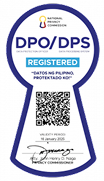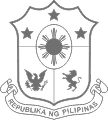DTI, ITC officially conclude the EU Climate Competitiveness Project
Makati City, Philippines – The Department of Trade and Industry (DTI) and International Trade Centre (ITC) conducted the concluding workshop for the EU-funded Climate Competitiveness Project in the Philippines last 18 September 2025 in Makati City.
The event brought together over 50 participants from government agencies, industry, and the private sector to tackle the project’s key outputs and lessons from implementing initiatives to assist the country integrate climate resilience and sustainability into its trade and environmental policies. The ITC recognized the Philippines as the “most advanced” among participating countries in implementing the Climate Competitiveness Project.
In her welcome remarks, DTI-Bureau of International Trade Relations Director Marie Sherylyn D. Aquia emphasized the urgency of climate action, linking environmental protection with economic resilience and intergenerational well-being. She described the project as essential in supporting a low-carbon transition, particularly for Micro, Small, and Medium Enterprises (MSMEs) and exporters.
First Counsellor Justyna Lasik, Head of the Economic and Trade Section, of the EU Delegation highlighted the project’s success in promoting the EU Deforestation Regulation (EUDR) and sharing key regulatory insights to support sustainable trade. She also expressed hope that the outcomes would inform discussions at the World Trade Organization.
The workshop provided an excellent platform to showcase the Project’s actionable strategies for integrating climate considerations into trade policies, including support for industry realignment toward traceability, adapting to regulatory new benchmarks, and leveraging the Philippines’ potential in green trade. Mr. Alexander Kasterine, ITC Senior Advisor, led the session to discuss possible strategies for the country’s green transition as outlined in the flagship study titled, “Climate Change and Trade in the Philippines – Strategic Actions for Resilience”, jointly published by ITC and DTI in July 2025.
DTI-Export Marketing Bureau Director Bianca Sykimte and Ms. Michaela Summerer, ITC Policy Analyst, highlighted the success and insights in the capacity building sessions conducted under the project and through the Department’s Usapang Exports initiative. With a total of 10 capacity building sessions and over 600 participants across Manila, General Santos City, Zamboanga City, Davao City as well as in hybrid format, ITC and EMB noted the importance of building stakeholder awareness across exporters, processors and even farmers on EU regulations, such as the EU Deforestation Regulation (EUDR), Packaging and Packaging Waste Regulation (PPWR), Ecodesign for Sustainable Products Regulation (ESPR), and Carbon Reporting. In holding these workshops for both government and the private sector, participants also acknowledged that transition must be coupled with capacity building to empower domestic firms to meet the demands of their markets.
On the side of the private sector, the workshop featured a session on the lessons learned from the workshops conducted the past year. Ms. Flordeliza Leong, Vice President of the Philippine Exporters Confederation, Inc. (PHILEXPORT) underscored the need to foster a robust exporting ecosystem, and for a whole-of-government approach in addressing possible regulatory burdens that may be faced by MSMEs and exporters once new regulations are implemented. She also called for more capacity-building sessions on carbon accounting, life cycle analysis, and eco-design to address information gaps among MSMEs. Sharing their insights from the perspective of the cacao and rubber industry, Mr. Dante R. Muyco, Jr. of the Davao Region Cacao Industry Development Council and Ms. Grace Labardo, Farma Rubber Industries Inc., respectively noted the current success of the country in exporting in the EU market and efforts to meet relevant EU regulations. Both speakers called for the need for greater investments in their sectors and mentioned importance of continued support and innovation within the industry to meet relevant standards.
The session on the panel discussion and strategic next steps was attended by DENR Assistant Secretary Noralene Uy, Ms. Mariane Genelou Reyes of the DTI-Board of Investments, Mr. Kasterine of ITC, and Mr. Jan Dela Vega of the DTI-BITR. The final session highlighted the need to further align domestic policies with global sustainability trends, provided updates on the country’s efforts on carbon markets, and announced the launch of an ITC online trade and environment course in early 2026. Overall, there was consensus on prioritizing investments in renewable energy, improving MSME access to clean technologies, and strengthening technical capacity to align trade with climate goals. The DTI, together with relevant agencies, will continue to pursue these initiatives and next steps through the Technical Working Group on Trade and Environment chaired by the Department. ♦
Date of Release: 29 September 2025


















































